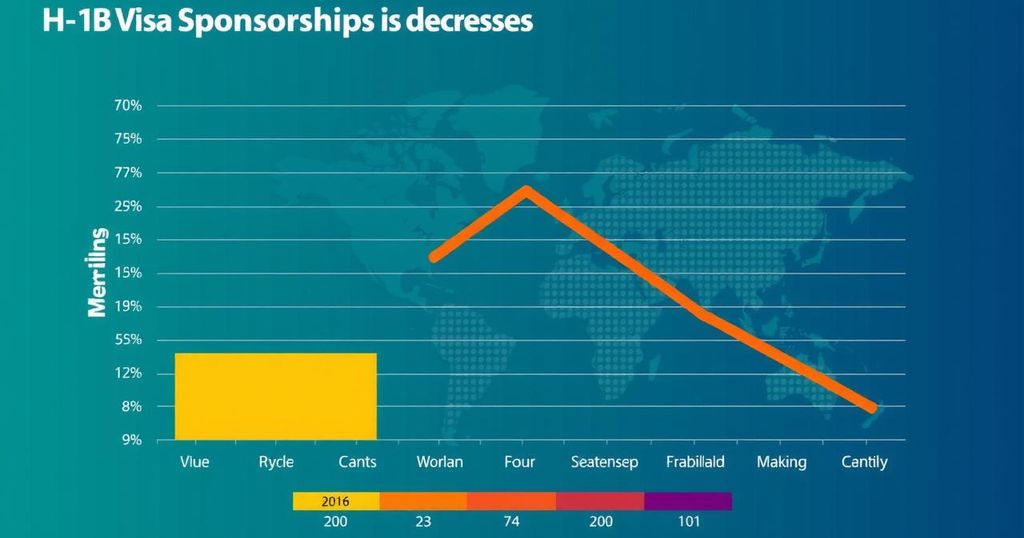In 2024, significant reductions in H-1B visa sponsorships have been noted among major U.S. companies, with Amazon leading at 9,265 approvals. This trend reflects a move toward domestic talent and is observed across multiple firms, affecting strategies within the tech industry amidst shifting immigration regulations.
In 2024, the landscape of H-1B visa sponsorship in the United States has notably shifted. Recent data from USCIS reveals that companies are drastically reducing their sponsorship numbers, reflecting ongoing changes in immigration policies and hiring strategies. Amazon Com Services LLC leads the pack with 9,265 approvals, yet this marks a significant decline from over 11,000 in the previous year. Key Indian IT firms, including Infosys and Tata Consultancy Services, also report reductions, which may impact their operational expansions in the U.S. This broader trend of declining sponsorship approvals across nearly all leading companies indicates a potential pivot towards utilizing local talent, as they adapt to evolving regulatory frameworks and labor market needs.
High-profile sponsors like Google and Microsoft, while still among the largest H-1B proponents, have also encountered drops in approvals. Observers suggest that tightening visa allocations compel these firms to reevaluate their hiring strategies, which could lead to a proportional shift in tech employment dynamics both domestically and globally. The projected implications of these changes further underscore the importance of monitoring immigration policies and the strategies organizations employ in securing skilled labor, thus influencing both organizational performance and market competitiveness.
The H-1B visa program is crucial for U.S. companies seeking to employ foreign workers in specialty occupations. The fluctuation in visa approvals is often indicative of broader economic trends and changes in immigration regulations. As companies adjust to revised immigration landscapes, they may prioritize domestic talent acquisition, leading to altered hiring practices. With a decline in approvals across the top 15 sponsoring firms, the implications could resonate throughout the technology sector and beyond, raising significant attention on how these strategies evolve in response to policy shifts.
The decrease in H-1B visa sponsorships among leading U.S. companies in 2024 underscores a pivotal moment in the relationship between immigration policy and labor market dynamics. Major corporations are now facing the necessity to rethink their hiring methods, potentially leaning towards domestic talent to cope with the evolving regulatory environment. This trend not only shapes individual companies’ strategies but also signals a broader movement that may influence future immigration policies and employment trends in the technology sector.
Original Source: m.economictimes.com

Leave a Reply